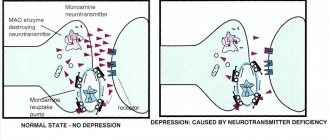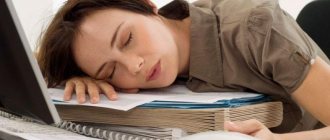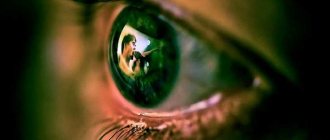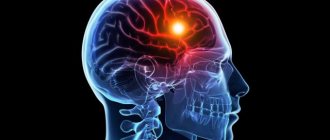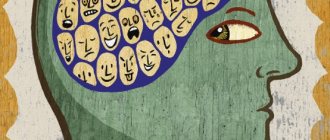What are antidepressants?
There is a misconception that these drugs are something like soft drugs or a strong sedative. In fact, only people who have never experienced depression in their lives can think this way. This is not just melancholy and apathy, but a disturbance in brain metabolic processes and the transmission of nerve impulses that has arisen against the background of prolonged stress. A person falls into a state from which he cannot pull himself out on his own.
Symptoms of depressive disorder:
- No appetite;
- Insomnia at night and drowsiness during the day;
- Apathy;
- A critical attitude towards one’s personality;
- Pessimism;
- Suicidal thoughts;
- Attention and memory suffer.
The person seems to be in a gloomy gray world of dysphoria (the opposite of euphoria), nothing makes him happy. Melancholy, fear and unwillingness to live roll in. With a long course of the disease, other symptoms may appear that the patient does not associate with depression. For example, nausea and vomiting, as well as pressing, stabbing pain in the throat, heart, and head. Everyone develops their own symptom complex depending on the causes of stress and other circumstances.
Attention! The consequences of depressive diseases are neuroses, severe panic attacks, and sometimes death by suicide.
For treatment, an antidepressant is prescribed - a medicine from a special group that is integrated into the chemical processes of the brain and improves its functioning. Based on the principle of impact, they are divided into 3 types:
- SSRIs - Selective serotonin reuptake inhibitors.
- TCAs are tricyclic antidepressants.
- MAOIs are monoamine oxidase inhibitors.
We will not delve into chemical formulations, let’s just say that with long-term use, such drugs help to establish normal brain function. Therefore, antidepressants are taken from 2 months to a year. In some cases, it is necessary to adjust the treatment and select a more effective drug, so therapy is delayed for several years. The medicine does not calm down or give a state of euphoria; on the contrary, there are a number of side effects, so drugs from other groups are prescribed together to relieve the symptoms of depression - tranquilizers or antipsychotics, depending on the situation. When the antidepressant begins to work, the accompanying medication is removed.
How to continue to live?
The pill returns you to a state of mind where you can function normally. For a person who has experienced depression, this is literally a gift from heaven. Depressive episodes are quickly forgotten, and you enjoy your new state for several months.
Then it becomes enough for you, because the side effects have not gone away. By this point, your brain incorrectly decides that you need to get rid of the drug, and then we’ll manage somehow.
In fact, you need to use the emerging fortitude to organize your life while you can.
Under no circumstances should you take on too many responsibilities. We will train in long jumps slowly.
I, like many, started my journey with a glass of water.
I installed the Fabulous app on my phone (after a while it becomes paid; there are some drawbacks). You can probably use a notepad, an alarm clock on your phone, or something else; I'm talking about my own experience. Let me emphasize that what follows should not be read as “the app saved me from depression,” but as “I found a tool that sharpened my will.”
The idea behind Fabulous is to organize your day. It doesn't interfere in your affairs. Instead, routine slots appear - morning, afternoon and evening. You slowly introduce small healthy habits and make sure that everything in the routine is completed. After a conditional week of drinking a glass of water, a short warm-up will be added. Then a delicious breakfast. Then the obligatory “celebrate success” item. Then write a to-do list for the day. And so on.
Three routine slots form the frame of the wigwam, that is, your day. Gradually other important things are added to the frame. One of them is managing your energy. The fact is that no app will help if you go to bed after midnight and get up by noon. Or if you don't get enough sleep. Or, on the contrary, you will lie around for 16 hours straight.
So at some point you will have to make a tough decision: go to bed before midnight and wake up early. After many tests, the following schedule turned out to be convenient for me: go to bed at 23, wake up at 6:30. He held on for quite a long time, now I have retreated from him a little, and will return in 2020.
The idea of getting up early is generally very productive. Remember how the whole world comes at once to a depressed person? So, the world is still sleeping at 6:30. You don't have to check your email. You can work for an hour on your secret project. Or think. Or write it in your diary. Or, unexpectedly for yourself, prepare breakfast for your still sleeping relatives or go to a cafe for it.
You have one and a half to two hours free. Even if the new day is as depressing as the previous ones, you will make a little progress thanks to the morning hours.
Today I forgot to think about the meaning of life, as the application tells me
You need to kill at least a couple of months for this. At some point, you will reach a point where a friend, another article, or an app will suggest you meditate. Agree, but on your own terms.
These are the conditions:
- Each meditation should relieve you of anxiety or bring you closer to an important life decision. Try it until you find your favorite type of meditation. Then try again.
- Meditation, auto-training or God knows what other tricks should strengthen two muscles. Firstly, the will, which you will not have without pills. Secondly, the determination to live your own life, and not according to orders from the outside. A healthy person can afford to go with the flow. You are perpetually calm, and in order to move, you need to row in the direction you want.
- Record the thoughts that come to you, but do not necessarily re-read them. Every week you get stronger. And although progress may not be immediately noticeable, why would you re-read the Diary of a Wimpy Kid?
Your day should become a self-sustaining system that forces you to simultaneously move forward, think about your goals, relax and go to sleep with a sense of accomplishment.
They say that to grow a beard from the outside, you need to grow it from the inside. It's the same with discipline, will and determination.
And don't forget to praise yourself for every achievement. Your day is not a rent you pay to yourself. These are carefully selected actions that improve your life every day (the “60 minutes for a secret project” item in Fabulous brought me - and unbeknownst readers - so much joy!).
How does withdrawal syndrome manifest?
A patient who stops taking the drug begins to feel symptoms the very next day:
- Sleep disorders;
- Apathy;
- Headache;
- Unmotivated mood swings;
- Nervousness, aggression;
- Nausea;
- Problems with the gastrointestinal tract;
- Various spasms;
- Hand trembling;
- Physical weakness;
- Feeling overwhelmed;
- Heart rhythm disturbances;
- Attacks of fear;
- Double vision and spots in the eyes;
- Blood pressure surges.
We can say that all the symptoms of depression are returning, intensified several times. The person feels even worse than before treatment. There is a feeling that the drug restrained and accumulated the negative manifestations of the disease, and after withdrawal they fell on the person at once. Therefore, psychotherapists call the condition of the syndrome a rebound.
The duration of pathological manifestations depends on the duration of the course of treatment, dosage, as well as the psychotherapeutic work done. On average, when asked how long withdrawal symptoms last, doctors answer – 1-2 weeks.
Attention! According to some patients, the negative state did not leave them for many months.
P.S
Thank you very much for the very positive response. The article turned out to be useful, which means that some things need to be clarified, including at the request of doctors.
- “Getting off antidepressants” does not mean being cured. Many mental illnesses have no treatment. But often (not always) it is possible to achieve an equilibrium state and reduce medication use to a minimum. In such a controlled state, in the absence of external crises, one can remain for quite a long time. A doctor and only a doctor will help you achieve balance.
- Depression, anxiety disorder, bipolar disorder, %enter the diagnosis% - all this can return at any time. We must be prepared for this. Old pills may not work after being stopped. Your doctor will help you choose new ones. Never self-medicate.
- I described my experience as if I immediately felt strong and ran to reduce the dose. An unforgivable mistake, since I even indicated “two months” as a guideline. In fact, you will spend more than six months on prescribed medications that correct your condition.
- My experience cannot be taken one by one. For example, due to another illness, I continue to take those pills that at the same time normalize my mood. Without them, things might have been worse. In general, I was lucky in many ways. You will also be lucky, but in a different way.
Why does deterioration occur when antidepressants are discontinued?
There are several reasons. We will analyze each of them separately.
Ineffective treatment
An incorrectly selected drug, insufficient dosage and duration of therapy will lead to the return of depression. Therefore, sometimes the patient has to try various drug treatment options, and sometimes change more than one doctor in order to find the right solution to the problem. In this case, we are not talking about withdrawal syndrome, but about the return of symptoms of the underlying disease.
Incorrect course termination
As we have already said, the active substances of the drug are integrated into brain processes. Therefore, abruptly stopping the intake will cause a real withdrawal syndrome, when the necessary substance ceases to enter the body. Therefore, a gradual reduction in dosage is necessary. First, reduce one tablet to half and take it for a week, then by a quarter, then by 1/8 and stop treatment completely. By the way, antidepressant therapy begins in a similar way, but in reverse order. This is necessary to obtain the optimal amount of active substance, which is very individual.
During the time the dosage is reduced, the body itself will learn to produce a shortage of necessary substances. As a result of this approach, withdrawal symptoms may not occur at all or may go almost unnoticed.
Psychological dependence
This is the main problem of depressed patients. Such people have a special character - they are sensitive, suspicious, suggestible, and much in their body depends on their psycho-emotional mood. Therefore, when canceling, they fear that the disease will return. Thereby provoking a ricochet.
To get rid of depressive disorder and avoid psychological dependence on drugs, it is necessary to combine drug treatment with psychotherapeutic help. A person must change, turn over his consciousness, way of thinking, attitude towards life, otherwise he will become an eternal patient. It is impossible to resolve such important issues on your own. A specialist will help with this during conversations, using his knowledge, which is not available to the patient.
Fact! Tranquilizers cause strong psychological dependence, as they give a person immediate relief. Which is impossible when taking antidepressants.
Antidepressants and withdrawal syndrome
Antidepressant withdrawal syndrome
➤ Tips for relieving withdrawal symptoms.
For a person suffering from major depression, an antidepressant (Prozac, Paxil) can indeed be a savior, both figuratively and figuratively, but there may come a point when you feel better and are ready to experience life without it. If this describes you, be sure to talk to your doctor first.
For what?
Because antidepressants can cause withdrawal symptoms if there are significant fluctuations in the amount of medication in your system or if you suddenly stop taking them completely. Although these symptoms are rarely life-threatening, they can be uncomfortable. Your doctor can create a tapering schedule for your medications to help minimize or avoid withdrawal symptoms.
How do different drugs perform after treatment ends?
It has been noted by practicing doctors, as well as as a result of scientific research, that SSRIs more often cause negative symptoms. Thus, with Paxil withdrawal syndrome, all manifestations are the most striking, but the fact itself occurs less frequently than when taking other drugs in this group.
Fluoxetine causes aggression and irritability and is more indicative of a person's emotional stability. Therefore, it makes sense to use sedative herbal remedies here.
Sleep disorders - nightmares, awakenings, insomnia occur after discontinuation of Cipralex.
As a result of the end of treatment with Adepress, headaches, hallucinations, tremors, depression of attention and memory, and pulse irregularities appear.
Attention! Any reactions are individual, only generalized information is provided.
#7 Stick to your schedule
Antidepressant withdrawal syndrome
➤ A Chinese woman checks her antidepressant intake hours.
Antidepressant withdrawal syndrome ➤ Some antidepressants, such as Effexor (venlafaxine), are the opposite of Prozac (fluoxetine): they leave your system quickly and therefore can cause withdrawal symptoms. This can happen even if you are just a little late taking your usual dose. If you happen to forget your antidepressant, you can go ahead and take it as soon as you realize you missed it. The exception is when it is time for your next scheduled dose; in this case, wait until then and get back on track.
Treatment errors
Combining tranquilizers such as Phenibut with an antidepressant is a normal therapeutic course. Such a complex will relieve the patient’s condition from the symptoms of depression and side effects of the main medication with the help of a tranquilizer. At this time, the antidepressant has time to take effect and the person will be able to adequately perceive psychological help.
But sometimes doctors or patients continue to take Phenibut on their own, which is allowed to be used for no more than 2 weeks. They feel good after taking the pill, but even one missed dose causes their condition to worsen. Here we can already talk about the withdrawal syndrome of tranquilizers, which form a persistent chemical dependence. The patient will have to be treated by a narcologist.
Unfortunately, unscrupulous doctors use this technique to get quick results and “regular clients.” There is no talk of any treatment.
Tranquilizers do not cure! They only make it possible to alleviate the patient’s serious condition before obtaining a therapeutic effect from antidepressants.
The patient takes other medications on his own or as prescribed by a doctor, which can also cause side effects and dependence. Antidepressants are wrongly blamed for the withdrawal syndrome of sleeping pills and neuroleptics.
A mistake is the above-mentioned insufficient treatment or incorrect cessation of treatment. And also refusal of psychotherapy. Depression does not affect just anyone. Individuals with a certain temperament, character, in special circumstances are susceptible.
It is a mistake to think that an antidepressant can be taken once in a stressful situation, like no-shpu during a spasm. Such drugs treat rather than relieve symptoms; they are effective over the long term.
If the withdrawal syndrome manifests itself too severely and the symptoms coincide with the condition before treatment, then the doctor may prescribe continuation of therapy with an increase in dosage. And the next termination attempt will be smoother.
How is depression treated?
If we ignore pharmacology, then all techniques come down to one thing. A doctor, a pill and some simple methods, which will be discussed later, restore your will to live. On the one hand, the desire to do something slowly returns to you. On the other hand, the joy of what has been done.
Why is depression bad? You can't do anything. Without doing anything, you don't get results. If you don't get results, you don't get rewards. Without receiving a reward, you do not receive motivation to move on to the next task. It's a vicious circle, a noose that tightens around your neck.
To untangle the stranglehold, you need to carefully and in a controlled manner train you to succeed, no matter how small it may be. Then add a little weight, make sure you're holding. More. More. More. And so on until the superman. Joke.
Imagine that you live on the left bank of a river, and your target is on the right, just 6 meters away. And they tell you that the only way to cross the river is in one leap. You open the encyclopedia and find out that at the end of the 19th century, men learned to jump 7 meters 23 centimeters. You are not a super athlete, but jumping 6 meters is within the realm of possibility for a 21st century person. But here's the problem - you can't do it the first time. You need to train for a couple of years. No person can jump 6 meters long without preparation.
The journey out of the depths of depression takes a long time. In the words “the desire to do something slowly returns,” the key word is “slowly.” Moreover, I have bad news for you (the only one in this article, I promise).
Chances are your depression will be with you for the rest of your life.
The good news is that you have the power to not give in to her. The even better news is that the further you go down this path, the easier it is to control your depression.
How to help yourself with withdrawal symptoms?
If the doctor is completely sure of the need to stop taking the antidepressant, you need to provide the most favorable conditions for 1-2 weeks:
- Take time off from work;
- Do not date people who cause negative reactions;
- Contact a psychologist or psychotherapist;
- Relieve emotional stress with sedatives based on valerian or motherwort;
- Try to diversify your leisure time with enjoyable activities. Massage and swimming have a good effect;
- Give up routine daily work.
Expert opinion! Against the background of long-term treatment and depression, withdrawal syndrome has a rather short-term effect. You can easily wait a couple of weeks. But successful rehabilitation will require the help of loved ones and professionals; a person cannot cope on his own.
Time factor
How long does this condition last? If we leave out the individual characteristics of the body, the severity of side effects, the duration of taking antidepressants and the presence of chronic pathologies, then no more than 2-3 weeks. But here it should be clarified that this period implies adequate treatment. Appointed, let us especially clarify, by a doctor, and not by an all-knowing guru who lives on one of the many forums.
If the patient once again decides that it is possible to cope with SOA on his own, not the best times await him. The symptoms of depression will return, only this time greatly intensified. The liver will begin to fail, unable to neutralize such a volume of toxic substances. Unpleasant effects on the cardiovascular system will force you to consult a cardiologist and completely reconsider your life schedule.
Summary
Antidepressants may cause withdrawal symptoms. Symptoms usually occur after a sudden reduction in the dose of the drug. In most cases, symptoms are mild and last several days.
By gradually reducing your medication dosage, you will reduce your risk of developing withdrawal symptoms. You should talk to your doctor to determine the best way to stop your antidepressants.
Fortunately, mentalities are changing now and people are no longer ashamed of seeking help from a mental health professional. I often think of a quote from the TV series Scrubs: “Depression is not a sign of weakness, it’s a sign that you’ve been trying to be strong for too long.”…
I wish you all good health and a feeling of joy in life, my dears! Write in the comments what else you would be interested in reading about. See you in new articles!
How can I thank you?
If you liked the article and our website was useful to you, you can also help us by posting a link on social networks.
